 Edith Hall in The Guardian:
Edith Hall in The Guardian:
Translations of Homer matter to cultural history. John Keats once looked into the “wide expanse” of George Chapman’s 1611 translation of the Iliad and breathed “its pure serene”. Alexander Pope’s rhyming version of the Iliad (1715-1720) brought a canonical ancient author to a much larger audience than ever before, its readers now including literate workers and women who had never had the opportunity to learn Greek. It had been through 27 editions by 1790. The early 20th-century Labour MP Will Crooks, who grew up in poverty and was dazzled by a twopenny second-hand copy, later recalled that “pictures of romance and beauty I had never dreamed of suddenly opened up before my eyes. I was transported from the East End to an enchanted land.”
New translations also proliferated. There were nearly 50 English-language versions in the 19th century, at least 30 in the 20th, and a dozen or more already in the 21st. Some are outstanding: Richmond Lattimore (1951) brilliantly reproduced Homer’s rolling dactylic hexameters; the trench-traumatised Robert Graves (1959) evoked Achilles’ alienation and brutality; Robert Fitzgerald (1974) grasped the Iliad’s pace and acoustic beauty and Christopher Logue (War Music, 1981) its visceral impact. Robert Fagles’s translation (1990) has relentless forward drive and readability. Do we really need another? If it is this one by Emily Wilson, then we certainly do.
More here. Additionally, here is a critical review by Valerie Stivers in Compact Magazine.

 Laura Marsh in The New Republic:
Laura Marsh in The New Republic: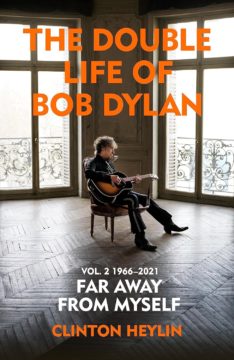 W
W The insurrection failed. The system held — at least for a time. In November 1923, when a young demagogue named Adolf Hitler tried to start a Nazi revolution from a Munich beer hall, his attempted coup was so disorganized that it swiftly degenerated into bumbling confusion. One participant later testified that the operation was such a farce that he whispered to others, “Play along with this comedy.”
The insurrection failed. The system held — at least for a time. In November 1923, when a young demagogue named Adolf Hitler tried to start a Nazi revolution from a Munich beer hall, his attempted coup was so disorganized that it swiftly degenerated into bumbling confusion. One participant later testified that the operation was such a farce that he whispered to others, “Play along with this comedy.”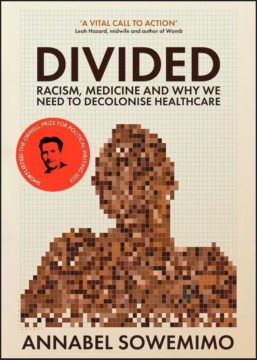 The health service is a contradiction. It has been built on immigrant labour from conception to the present day. Walk into many NHS services, and you will find it is Black and Brown faces that are assessing, diagnosing and treating. Yet we find huge race-based health disparities, in maternity, mental health, Covid-19 deaths and more.
The health service is a contradiction. It has been built on immigrant labour from conception to the present day. Walk into many NHS services, and you will find it is Black and Brown faces that are assessing, diagnosing and treating. Yet we find huge race-based health disparities, in maternity, mental health, Covid-19 deaths and more.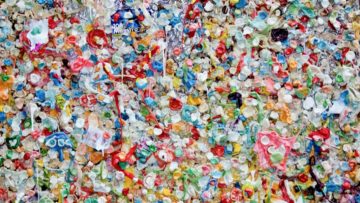 The first time I heard about the
The first time I heard about the 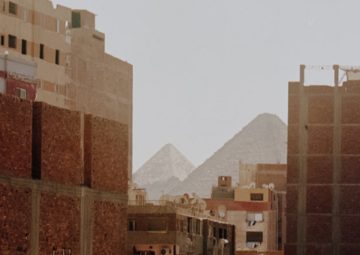 C
C There’s a fun math problem here about how much space you need to turn your car around, and mathematicians have been working on an idealized version of it for over 100 years. It started in 1917 when the Japanese mathematician Sōichi Kakeya posed a problem that sounds a little like our traffic jam. Suppose you’ve got an infinitely thin needle of length 1. What’s the area of the smallest region in which you can turn the needle 180 degrees and return it to its original position? This is known as Kakeya’s needle problem, and mathematicians are still studying variations of it. Let’s take a look at the simple geometry that makes Kakeya’s needle problem so interesting and surprising.
There’s a fun math problem here about how much space you need to turn your car around, and mathematicians have been working on an idealized version of it for over 100 years. It started in 1917 when the Japanese mathematician Sōichi Kakeya posed a problem that sounds a little like our traffic jam. Suppose you’ve got an infinitely thin needle of length 1. What’s the area of the smallest region in which you can turn the needle 180 degrees and return it to its original position? This is known as Kakeya’s needle problem, and mathematicians are still studying variations of it. Let’s take a look at the simple geometry that makes Kakeya’s needle problem so interesting and surprising. China’s property sector is the
China’s property sector is the  C
C Brain development is a carefully choreographed dance. Neurons develop specialized functions and, in small hops, move through the brain to get into the correct position. The chemical signals coursing through the resulting network allow animals to think, feel, and live. In neurodevelopmental disorders (NDD), however, hundreds of mutations in the DNA can interrupt this process. But scientists still do not know how each of these mutations interrupts the neurons’ precise differentiation or migration patterns. Studying these defects directly in embryos or newborns is too dangerous, and other animal models may deviate from human development.
Brain development is a carefully choreographed dance. Neurons develop specialized functions and, in small hops, move through the brain to get into the correct position. The chemical signals coursing through the resulting network allow animals to think, feel, and live. In neurodevelopmental disorders (NDD), however, hundreds of mutations in the DNA can interrupt this process. But scientists still do not know how each of these mutations interrupts the neurons’ precise differentiation or migration patterns. Studying these defects directly in embryos or newborns is too dangerous, and other animal models may deviate from human development. I WAS AMONG MANY THAIS
I WAS AMONG MANY THAIS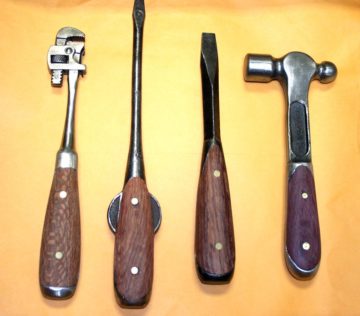 Consider how you hold a piece of chalk. Not by the handle: it doesn’t have one. Or, if it does, that handle is of the chalk’s own substance, flesh of its flesh, distinguishable only because it is the bit left in your hand when you can’t write anymore. A useless nub, or stub, or butt. Its persistence is a faint embarrassment, a remainder you don’t know what to do with—maybe you should stuff it in your pocket, or leave it in the tray with the erasers, or drop it on the floor and grind it into dust with your heel. It’s a waste, surely, just to throw it out. But it cannot be grafted onto another piece of chalk, not without gratuitous ingenuity, nor can it be used to hold anything else. It’s like the end of a pencil or of a filterless cigarette. Life is a midden of such abandoned handles. You didn’t even know they were handles, until they lost their grip and you were left holding them in a pinch, a pinch that can narrow, without your noticing, to contempt.
Consider how you hold a piece of chalk. Not by the handle: it doesn’t have one. Or, if it does, that handle is of the chalk’s own substance, flesh of its flesh, distinguishable only because it is the bit left in your hand when you can’t write anymore. A useless nub, or stub, or butt. Its persistence is a faint embarrassment, a remainder you don’t know what to do with—maybe you should stuff it in your pocket, or leave it in the tray with the erasers, or drop it on the floor and grind it into dust with your heel. It’s a waste, surely, just to throw it out. But it cannot be grafted onto another piece of chalk, not without gratuitous ingenuity, nor can it be used to hold anything else. It’s like the end of a pencil or of a filterless cigarette. Life is a midden of such abandoned handles. You didn’t even know they were handles, until they lost their grip and you were left holding them in a pinch, a pinch that can narrow, without your noticing, to contempt.